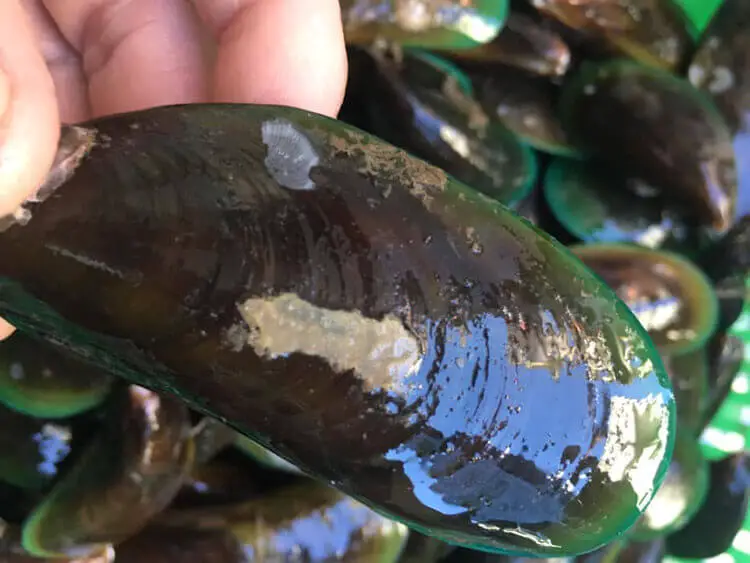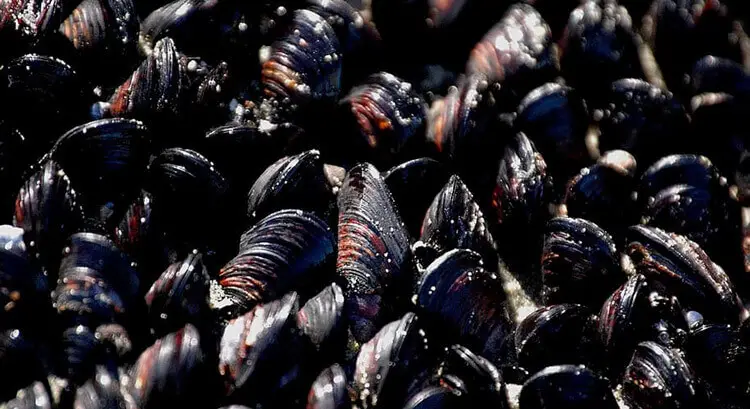It’s a pity for seafood lovers living far away from the sea. How can they enjoy tasty mussels all year round? Don’t worry! If you love it, there must be a way to get it. And storing seafood properly is the key here.
We often freeze your food to extend its shelf life and serve them at your convenience. So can you freeze fresh mussels? If yes, how to do it properly?
This article will give you the answers to these questions. You can also discover pro tips for storing your seafood. Let’s get into the details!
Table of Contents
Can You Freeze Fresh Mussels?
Yes, you can. In fact, freezing fresh mussels is the best way to store them and allows them to last the longest.
Besides, freezing fresh mussels is an excellent way to protect your seafood against harmful bacteria. The freezing temperatures are not ideal for them to develop.
But how to freeze fresh mussels correctly: There are only four easy steps to follow.
Step 1: Choose Fresh Mussels
Seafood may make you ill if not fresh enough. Among the seafood, mussels are among the easiest to spoil quickly. Hence, you need to choose high-quality mussels.
Your mussels should have an ocean-like aroma. If they smell fishy, do not even think about freezing them; they won’t be safe to eat. So, the shell of the mussels should be shiny, wet, and tightly closed.


Step 2: Clean the Mussels
Clean the mussels under running water to eliminate debris, dirt, and sand. This step also helps you check for open or damaged shells.
Double-check all the remaining mussels are alive. Then, put them in a colander to drain off the water before moving to the next step.
Step 3: Put the Mussels in a Freezer Bag
Dry your mussels one by one by patting them with a paper towel or a dry cloth.
Put the mussels in a freezer bag. Remember to leave about one inch so you can zip it easily. But before sealing, squeeze out all the air within the bag. Then, seal it tightly.
Step 4: Write the Date on the Bag
Write the date when you freeze your mussels on the bag for food safety. Thanks to the label, you can keep track of how long they have been in the freezer.
Thaw the frozen mussels in your refrigerator overnight when you want to cook the frozen mussels. Another thawing method is to put them in a container of cold water for one hour.
After thawing, check the mussels carefully for shells that have been broken or damaged. Smell them, too, to confirm if they still have an ocean-like aroma like they did when you bought them.
You can keep defrosted mussels in the refrigerator safely for about two days before cooking them.


How Long Can You Freeze Mussels?
Fresh mussels may remain good in the freezer for up to three months if correctly frozen. The longer you keep them there, the more flavor and texture will change.
So, to enjoy the taste and flavor of your favorite seafood, consume them within one to two months. Although the freezing temperature is ideal for storing seafood, it can’t last forever.
Remember the date you mark on the bag when you put it in the freezer? It’s the best tool to measure the safety and freshness of your food.
Do Mussels Freeze Well?
Yes. Mussels can freeze well, making freezing the best way to store them. However, the ability to freeze mussels depends on two factors:
Freezing Temperature
The temperature of your freezer should be stable. When kept at 0°F, mussels can last very long. On the other hand, they are sensitive to temperature fluctuations.
For example, when you open the freezer door, warm air will come in and thaw your frozen mussels a little bit. And if you leave the door open for a long time, the air will damage your seafood.
Type of Mussel
Because of the high salt content, saltwater mussels freeze better than freshwater mussels. Since the salt preserves the texture and texture of the flesh, salt mussels can last longer as well.


Do Mussels Open When Frozen?
Yes. If you freeze mussels while they are still alive, the mussels can open their shells for breathing. However, it happens in a short time.
What Makes Mussels Open Their Shells?
A mussel may relax its muscles and open its shell to breathe when it first comes out of water. So when you see a fresh mussel with its shell opened, tap it lightly. If the shell can close when tapped, the mussel is still alive.
However, in some cases, the shell can be open because the mussel has died. The adductor muscles in dead mussels don’t work. Then, the shells don’t have anything to keep them closed.
So, put it down if you see a mussel with an opened shell that doesn’t close when tapped.
Why Are Frozen Mussels Open?
The mussel opens to breathe when it’s alive. Hence, if you freeze a fresh mussel, the shell may remain open until closing again. You can still eat the mussel safely because it was fresh when you froze it.
Another case is that you cook mussels before freezing. When cooked, they will have open shells and are safe to eat when frozen.


Can You Freeze Cooked Mussels?
Yes. If you have cooked mussels but can’t eat them all, freeze them for future use. The instructions for freezing your food are as follows:
- Soak the cooked mussels in boiling water, shake them well, and then pour out all the water to remove all cooking oil, seasoning, and other ingredients from the dish.
- Allow the cooked mussels to cool down.
- Use aluminum foil to wrap them tightly. Try not to leave any air in the wrap.
- Put the wrapped mussels in a freezer bag or a shallow container. Again, try to squeeze out as much air as possible.
- Write the date on the bag.
- Put the bag in your freezer.
Interestingly, cooked mussels can last longer in the freezer than fresh mussels do. While the fresh ones remain good in this condition for only three months, cooking them will extend their lifespan up to six months.
Many cooks pre-cook mussels before freezing them because they know this secret. So next time you store the mussels, cook them first.
Can You Refreeze Mussels?
What if you defrost your frozen mussels and still can’t finish all of them? Can you refreeze them? No. It’s not a good idea to put your defrosted back in the freezer for these reasons:
- Food safety: When left at room temperature for defrosting, mussels will come into contact with harmful bacteria. They will cause foodborne illnesses if you cook them and eat them next time.
- Quality: The process of freezing and thawing affects the texture and quality of your mussels. Refreezing them will cause further damage to the muse’s flesh, ruining their taste. You can easily notice the soggy texture, then.


How Long Can Mussels Stay at Room Temperature?
Do not keep mussels at room temperature for longer than two hours. Please note that they are highly perishable. If you leave them on your countertop, harmful bacteria will develop and spoil them.
As aforementioned, Vibrio growth in mussels is dangerous. You will experience vomiting, nausea, fever, abdominal pain, and diarrhea when consumed. In the worst cases, it may result in kidney failure and dehydration.
If you want to store or transport mussels, keep them in a cooler with ice packs. The temperature inside the container must be between 39 and 46°F.
When you thaw the frozen mussels, be careful with the bacteria, too. Try to keep them in cold water for one hour before cooking. And if you have anything left, put it back in your refrigerator, where it can remain good for two days.
Can You Refrigerate Mussels?
Yes. Fresh mussels can last about two to five days in the refrigerator. Although the temperature there is much higher than the freezer’s, it can still keep your seafood safe within that time.
Refrigerating them will be a good idea if you don’t plan to store fresh mussels longer than five days. Here is how to do it properly:
- Clean the mussels carefully, like the way you clean them before freezing.
- Place the cleaned mussels in a container or a big bowl to hold them easily. The container shouldn’t be too tight because your mussels still need some air to breathe.
- Keep the mussels moist by covering them with a damp paper towel. Moisture is the key to success.
- Set your refrigerator at a temperature range of 39 to 46°F.
- Put the container of mussels in the refrigerator.


Conclusion
You can freeze mussels and keep them in the freezer for up to three months. Remember to clean them carefully and put them in a tightly sealed freezer bag. Avoid temperature fluctuations in the freezer, too, as it will spoil your food.
Storing food seems straightforward. However, you will face severe safety problems without following the right steps.
Hopefully, you can enjoy your tasty, fresh mussels after checking this guide. If you need more pro tips, do not hesitate to contact us.
Thank you for reading!















Way cool! Some extremely valid points! I appreciate you penning this write-up plus the rest of the site is also very good.
Wow, awesome weblog layout! How lengthy have you been blogging for?
you make blogging glance easy. The overall glance of your website is
magnificent, let alone the content! I saw similar here prev next and it’s was wrote by Leo60.